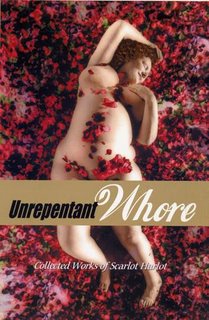Lyotard , Joyce, and Postmodernism
Since I have been spending almost three months official unemployed (graduate from college in May), I have had time to go back to my personal library and some of the texts from my classes. As a prospective French teacher, I need to keep both my language and critical analysis skills from falling off too quickly (in order to keep my sanity and hope intact). Last night, I decided to read something from one of my elephantine analogies that I have collected in fours years of studying literature - Critical Theory since Plato. Having taking a survey course on literary theory, I have developed a greater interest in philosophy and its intersections with literature. Thumbing through the Table of Contents, I decided to read an article by Jean François Lyotard entitled "Answering the Question: What is Postmodernism?" The concept of postmodernism is at the center of academic thought in the humanities as it has empowered numerous camps of skeptics. This argument often centers around the growth in the important of theory in humanities, especially in literary criticism. To my surprise, Mark Bauerlein, one of the bloggers for the Chronicle for Higher Education, recently wrote an entry that describes the lasting impact of this divide called "How Theory Damaged the Humanities." Even if you did not notice the rather bleak and ominous title, the language of the very first sentence would give you are clear indication of how Bauerlein feels about the rise of critical theory:
Hard as it is to believe, given the passions it continues to arouse, 42 years have passed since critical theory started to infiltrate the humanities in the United States.The evil double agent images that Bauerlein evokes with the word infiltrates prepares the reader for his thesis: critical theory doomed the future of the humanities when having a comprehensive grasp of it became an essential professional competency. While this seems like a rather petty complaint on the surface, Bauerlein is really trying to get the more profound problem: competency in critical theory has began to replace traditional content knowledge. Like some of those who replied to his post, I agree that echo chamber of theorist studying theory has done some damage to the brand of the humanities, especially in America. The more esoteric a discipline becomes, the greater risk there is that people will not see the point of studying or funding it. More to Bauerlein's point, it also takes the humanities away from its central goal to study the cultural products of humanity in all its maddening diversity. In addition, the rise of critical theory has forces a generation or two of scholars to amass a body of knowledge that has passed out of favor: "The theories that one had to master saw their day pass, and in the cold light of time it no longer seems necessary to know the arguments of deconstruction, reader-response … They grounded graduate training and hiring and promotion and publication in an enterprise that was uncertain and fluctuating. They announced that theory marked a revolution, but theory wasn’t strong enough to sustain a new institution."
One of my greatest disagreements with Bauerlein, shared by a fellow commenter, was his interpretation of a Paul de Man quote he used to bolster his point about the rise of the unnecessary burden of theory. In a letter advising the Irvine Comp Lit department, de Man depicts a future in which literary scholars will need “a new kind of skill … the capacity to use and feel at home in a whole series of different critical and theoretical codes and systems, as one would use a particular foreign language, without remaining rigidly locked into any one of them, but rather developing the capacity to translate those findings into different codes, systems, critical positions, as the case may require.” While I must admit that I have not had the privilege to the read the letter in question, it is clear that de Man did not expect a world in which theory was center of content or that holding a particular theory was a mark of inclusion in a cult of the righteous, as has happened especially with followers of deconstruction. In this new academic landscape, a broad knowledge of critical theory would be a set of tools with which literary scholars could use to do the work of analyzing and studying culture and its products. Clearly, de Man sees critical theory as means and not an end. It is that transition from theory as tool to theory as subject that cause the challenges to the future of humanities.
This long winded introduction has a point. Reading Lyotard's article about postmodernism solidifies a key reading of the role of Joyce's works in English and world literature. Lyotard opens the essay by describing the character of the period. The short and powerful opening line sets the tone for the entire piece: "This is a period of slackening - I refer to the color of the times" (1418). The words slackening and color are essential underlying concepts in this essay. Postmodernism, for Lyotard, is not a set of beliefs or theories but an ethos that has change how disciplines, theories, and beliefs are approached. Postmodernism marks the slackening of traditional categories or lines of inquiry. Early in the work, Lyotard makes reference a critic who sees postmodernists as "neoconservatives" who hope to "get rid of the uncompleted project of modernism, that of the Enlightenment" (1418). The project of the Enlightenment, in its absolute sense, has been ended by postmodermism. Works like Orientalism and Surveiller et punir, works also cited by Bauerlein as he examined the death grip of Theory on the humanities, challenge the notion the Enlightenment ideas are both objective and the product of the positive evolution on the human spirit. As Lyotard sets out to the develop in the essay, postmodernism shows the interconnectedness of "cognitive, ethical, and political discourse, thus opening the way to a unity of experience" (1418).
What is striking to me is how the concept of the unity of experience enriches a critical aspect of Joyce's purpose for Ulysses (and Finnegans Wake). Joyce's major works challenge that the very definition of previous stable concepts of the novel, literature, and the book. In works of Lyotard, Joyce creates an identity of writing "which is the victim of the an excess of the book (au trop de livre) or of literature" (1422). By not holding to the convention wisdom about structure, plot, form, and language, Joyce presents reality in a way that readers has never experienced. The personal, social, and ethical turmoil of Bloom, Stephen, and Ireland rise through variety of forms. Ulysses works as a work precisely because Joyce uses "[t]he whole range of available narrative and even stylistic operators" without "concern for the unity of the whole" (1422). However, the concept of "unity of the whole" needs to be carefully considered. Ulysses would not work as a piece of literature if the different chapters of the work did not create a unified whole. At this point, the reference to the Enlightenment at the beginning of the essay becomes important. Lyotard references to the "unity of whole" alludes to the three unities that was the mainstay of 18th century French playwrights. In a certain respect, Lyotard's description of Joye's writing is in the same vein as Coleridge's defense of Shakespeare - the power of Joyce's genius allowed him to create a work that transcends the norms of literature. The major difference is that Lyotard does not associate genius with god-like creative powers. For Lyotard it is Joyce's ability to see the possibility of overcoming the limits of the convention of the book. Joyce's visionary position has led to a whole class of scholars who write about postmodern Joyce. Joyce's position as modernist postmodernist thus begs the question: what is the true starting point of postmodernism? Lyotard's final definition of the postmodern hints at an answer:
Applying this to Joyce and other modernist writers, it becomes clear that the impetus for the modern and the postmodern are born in the same moment. In seeking to present the unpresentable, writers like Joyce create texts that explore the limits of the printed word. Revelations like this are the main reason why I disagree that a knowledge of theory, placed in its just perspective, are harmful in the long term to the humanities and literary criticism. The multiple lenses of theory lock new wellsprings of understanding about how literature functions and challenges the reader to take new positions in relationship to the text. The danger is when we privilege a theory over reality. In future posts, I hope to show that the postmodern impetus is present throughout Western literature as writers increasing work against convention to express the previously unexpressed.
The postmodern would be that, in the modern, puts forward the unpresentable in the presentation of itself ; that which denies itself the solace of good forms, the consensus of a taste which would make it possible to share collectively the nostalgia for the unattainable; [...]. A postmodern artist or writer is the position of a philosopher: the text he writes, the work he produces are not in principle governed by preetablished rules, and they cannot be judged according to a determining judgment, by applying familiar categories to the text or the work. Those rules and categories are what the work of art itself is looking for. (1423)
Works Cited
Lyotard, Jean François. "Answering the Question: What is Postmodernism?" trans. Régis Durand. Innovation/Renovation:New Prespectives on the Humanities. eds. Ihab Hassan and Sally Hassan. Madison: U of Wisconsin P, 1983. 329-41. Rpt. in Critical Theory Since Plato. 3rd ed. eds. Hazard Adams and Leroy Searle. Boston: Thomson Wadsworth, 2005. 1418-23.


